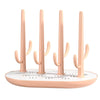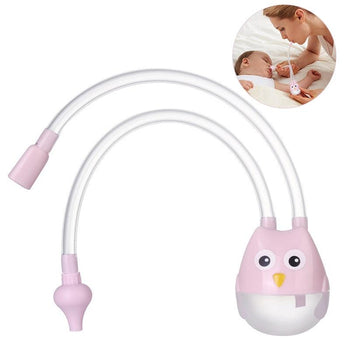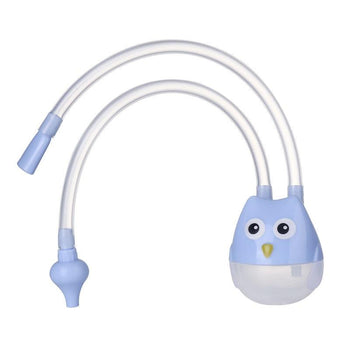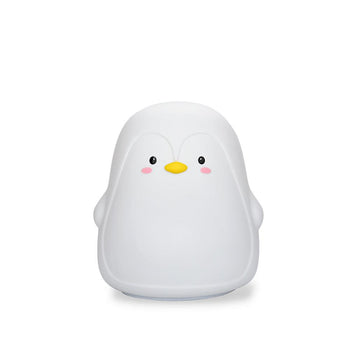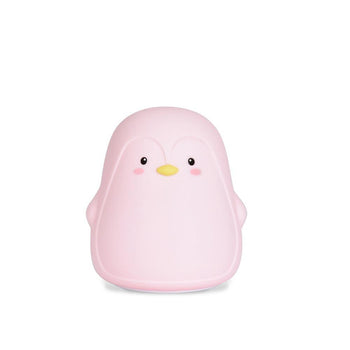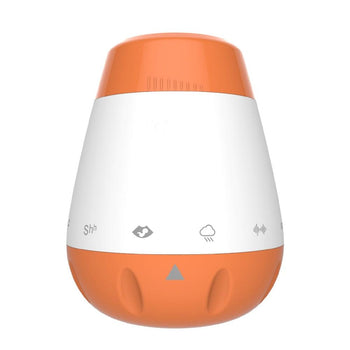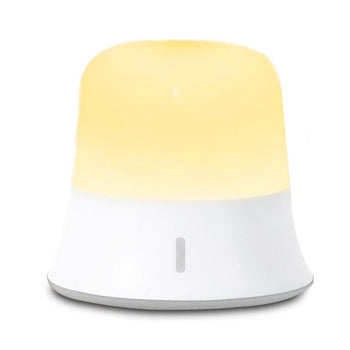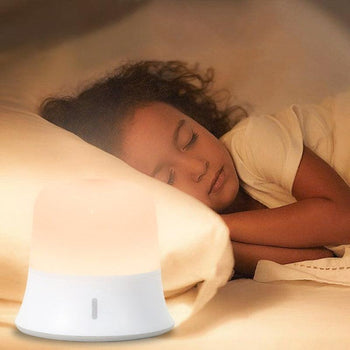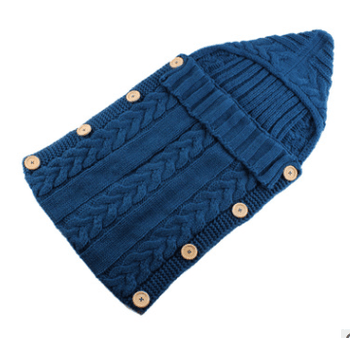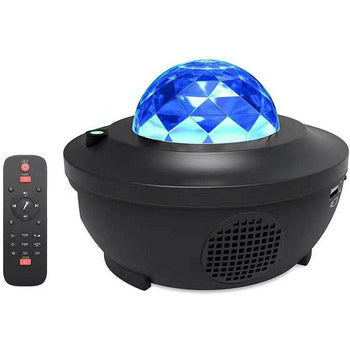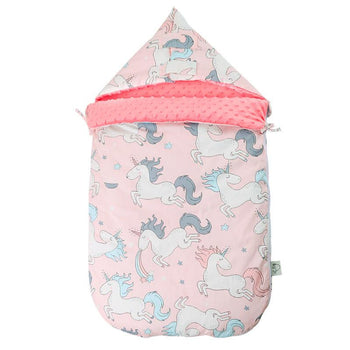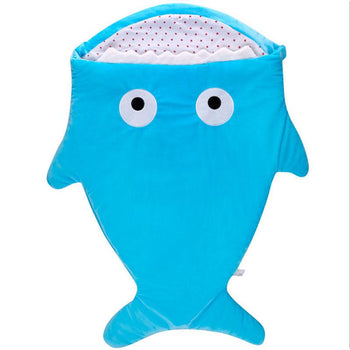Your baby can't sleep, we call it " sleep regression ". It's a phrase you probably didn't know existed before you had a baby, but now? Now that your baby wakes up every 20 minutes, and you're exhausted beyond reason? Now that your toddler is waging a fierce campaign against napping?
Yes - "sleep regression" is a phrase you're probably familiar with!
Sleep Regressions: What Are They?
A sleep regression describes a period of time (~3-6 weeks) when a baby or toddler who was sleeping well suddenly starts waking up at night, taking short naps and/or skipping naps for no apparent reason . Parents often describe being caught completely off guard: you think you've overcome all of your little one's sleeping problems, when suddenly, out of nowhere, you're back to constant nighttime wakings and non-existent naps.
Frustrating, to say the least!
The age of sleep regression: When (and why) do they happen?
Remember, every baby is different, so what's true for your friends' babies may not be true for yours. In other words, your baby or toddler may show real signs of regression at some of these times of the month, but not at others.
That said, there are ages when most babies or toddlers experience sleep disruption:
Sleep regression at 4 months
This one is permanent, friends! That is, the changes that occur with the 4 month sleep regression are permanent changes. At 4 months, your baby has given up on baby sleeping habits and is sleeping more like an adult - resulting in frequent nocturnal awakenings and lots of restlessness as well as shortened naps.
For more details on sleep regression at 4 months. Click here
Discover the 20 tips to deal with it.
Sleep regression at 6 months? Or, a growth spurt?
Over the past few years, working with hundreds of families, I have noticed no sleep disturbance at 6 months . Some 6 month olds have sleep problems around this age, but there is no 3-6 week period with chronic sleep problems like the other sleep regressions listed on this page.
More details on sleep regression at 6 months here .
Baby sleep regression at 8 months
The 8 month sleep regression is due to the developmental milestones that occur around 8 months, 9 months, and 10 months. At this stage, most babies are making great physical progress: learning to crawl, pull themselves up, navigate, etc. Brain development is also very advanced at this stage. Your baby is absorbing language like crazy!
Finally, most babies get at least a few teeth during this season. Add it all up and you get more nighttime awakenings, shorter (or even skipped) naps, and a fussy baby on your arms.
9 month sleep regression
The 9 month sleep regression is actually just the continuation of the 8 month sleep regression above. However, some babies don't start having difficulty falling asleep until they are 9 months old. There's nothing wrong with your baby sleeping well at 8 months, but not at 9 months.
Sleep regression at 10 months
Much like 9 month sleep regression, 10 month difficult sleeps are actually just the culmination of 8 or 9 month sleep regression , depending on when your baby started this phase. This sleep disruption lasts an average of 3-6 weeks, and some days/weeks will just be better than others.
The main difference with 10-month-olds is that many of them can stand up in bed, which can complicate things.
Sleep regression at 11 months
The 11 month sleep regression doesn't seem to affect as many babies as the other regressions. It seems to be less frequent.
In any case, this regression has a lot to do with naps - specifically, you might find that your baby suddenly starts refusing his second nap, and tries to get by with just one nap.
Many parents think this is a normal transition and that it means their child is ready for just one nap a day.
However, we strongly advise parents to view this nap as a sleep regression and not a transition. Most young children aren't really ready for a single nap a day until they're 15 to 18 months old, on average.
Sleep regression at 12 months
The sleep regression at 12 months is actually the same as the one at 11 months, although if your child starts this one at 12 months, it's possible she'll take a single nap early. However, it is best to be on the safe side and consider this disturbance as a sleep regression for a few weeks to be sure.
Sleep regression at 15 months
At 15 months, your child may be learning to walk, which can disrupt his sleep. But, as a rule of thumb, if your 15-month-old suddenly starts having trouble sleeping, chances are he'll start taking a single nap.
This is an age where it is very common for your child to start waking up at night because two naps are too long or because he has stopped taking a second nap and is too tired by bedtime. to sleep. At this age, it's not a matter of a 3-6 week period of sleep problems suddenly disappearing. Most sleep problems around this age are related to a schedule issue.
Sleep regression at 18 months
Oh, moms - this one is pretty exceptional. For what ? Because now your baby is a toddler, a toddler who walks, talks (well, babble at least), throws tantrums. This regression has a lot to do with your young child's newfound independence.
He learns that, guess what, he has opinions and things! And, better still, that he can express these opinions by shouting "NO!" at full volume! Separation anxiety also comes into play here; your child may be really anxious when you leave at nap time or when you leave the bedroom at bedtime. Learn how to manage your child's separation anxiety here .
Finally, teething is always a factor at 18 months, toddlers often have growing molars (those big, painful teeth!) at this time.
Sleep regression at age 2
To be honest, the 2-year sleep regression is a little less straightforward than the others. This is because there are a variety of factors that can cause it. At first, your 2-year-old's awake time is getting longer, but as he makes this transition, it can disrupt his sleep.
It's likely your child is also going through big life transitions, like potty training and moving to a toddler bed (and maybe even the arrival of a new sibling). !)
And, around the age of 2, many toddlers begin to have real nightmares or even night terrors ( more details here on night terrors, what to do and how to fix them?). All of this can lead to very real and very exhausting sleep crises around age 2.
Here you will find 5 tips on sleep regression at two years old: 5 things to know about your 2 year old's sleep
Sleep Regressions: How to Overcome Them
You know the what, why and when of sleep regression in babies and toddlers - how about the "how"?
As in: "How the hell can I fix this and get my peaceful nights sleep back?!?!
To start, remember that sleep regression at 4 months is a permanent change - there is no going back to how it was before. Once you've gotten through the worst of four months of difficult sleep, you'll want to focus on helping your baby break his sleep associations and learn to fall asleep without your help. Once he does, he'll be well on his way to sleeping through the night. And you'll also establish a more stable daytime schedule.
As for other sleep regressions, here are some tips to help you deal with the situation WITHOUT undoing all the progress you've made so far:
- Don't be afraid to offer extra foods. Growth spurts can be a component of sleep regressions, so don't worry about offering extra nighttime (or even daytime) feeding here and there. Remember - it's temporary! You will eventually return to your normal schedule.
- Provide comfort as needed, but avoid picking up new (or reverting to old) bad habits. You will definitely need to offer your baby or toddler lots of extra hugs and kisses during a sleep regression, and that's okay! But avoid creating new sleep associations – avoid rocking your baby to sleep regularly, or nursing him to sleep. Also avoid going back to your old bad habits: if you have weaned your child from the pacifier, for example, do not start offering the pacifier again during a period of sleep regression.
- Ask for help by leaning on your partner or your family. Sleep regressions last for a while (up to 4-6 weeks, in some cases!) and if you're diligent and try to get through it without creating new sleep associations, you're bound to be tired. This is the time to ask for help from all those who offer it to you! Get help from friends or family members (either with your little one or with household management).
- Suggest an earlier bedtime if necessary. Sleep regressions can lead to lack of sleep, which can lead to excessive fatigue, which can quickly turn into further lack of sleep. Ouch! So to avoid exhaustion, offer an earlier bedtime if necessary.
I hope this article has answered some questions you have and helped you. Don't hesitate to share your advice or ask questions to hear from other parents like you!
Do you want your baby to sleep through the night?
In this free guide , you'll discover 5 things you absolutely need to know.
With a unique approach and practical tools for success, this guide will help you and your baby sleep better through the night.










